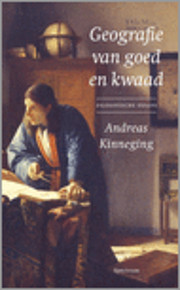

Fai clic su di un'immagine per andare a Google Ricerca Libri.
|
Sto caricando le informazioni... The Geography of Good and Evil: Philosophical Investigationsdi Andreas Kinneging
 Nessuno Sto caricando le informazioni...
Iscriviti per consentire a LibraryThing di scoprire se ti piacerà questo libro. Attualmente non vi sono conversazioni su questo libro. Nessuna recensione nessuna recensione | aggiungi una recensione
Do good and evil exist? Absolutely. In this bracing book, the eminent Dutch philosopher Andreas Kinneging turns fashionable thinking on its head, revealing how good and evil are objective, universal, and unchanging--and how they must be rediscovered in our age. In mapping the geography of good and evil, Kinneging reclaims, and reintroduces us to, the great tradition of ancient and Christian thought. Traditional wisdom enables us to address the eternal questions of good and evil that confront us in both public and private life. Though it is common to accept uncritically the blessings of modernity and its intellectual sources, the Enlightenment and Romanticism, Kinneging shows that traditional thinking is richer and more realistic. Indeed, we see how, in more than a few respects, the Enlightenment and Romanticism brought not progress but deterioration. Kinneging skillfully reformulates and defends the insights of traditional thinking for today's readers, demonstrating how an objective morality is to be understood and how we can know what morality demands of us. At a time when the traditional virtues have practically disappeared from our language (that is, all but one--"tolerance"), he lays out the foundations of virtue and vice. Ultimately, Kinneging reveals the lasting significance of these seemingly archaic notions--to our own lives, to our families, to our culture, and to civilization. This profound, award-winning work establishes Andreas Kinneging as one of our wisest moral philosophers. "Shows with utmost clarity the virtue of intellectual courage . . . A brilliant model for sallies against our dark age."--The Intercollegiate Review "[Kinneging is] leader of a conservative intellectual revival in the Netherlands." --New York Times Magazine Non sono state trovate descrizioni di biblioteche |
Discussioni correntiNessunoCopertine popolari
 Google Books — Sto caricando le informazioni... Google Books — Sto caricando le informazioni...GeneriSistema Decimale Melvil (DDC)170Philosophy and Psychology Ethics Ethics -- SubdivisionsClassificazione LCVotoMedia: (3.95) (3.95)
Sei tu?Diventa un autore di LibraryThing. |
||||||||||||||||||||||||||||||||||||||||||||||||||||||||||||||||||||||||||||||||||||||||||||||||||||||||||||||||||||||